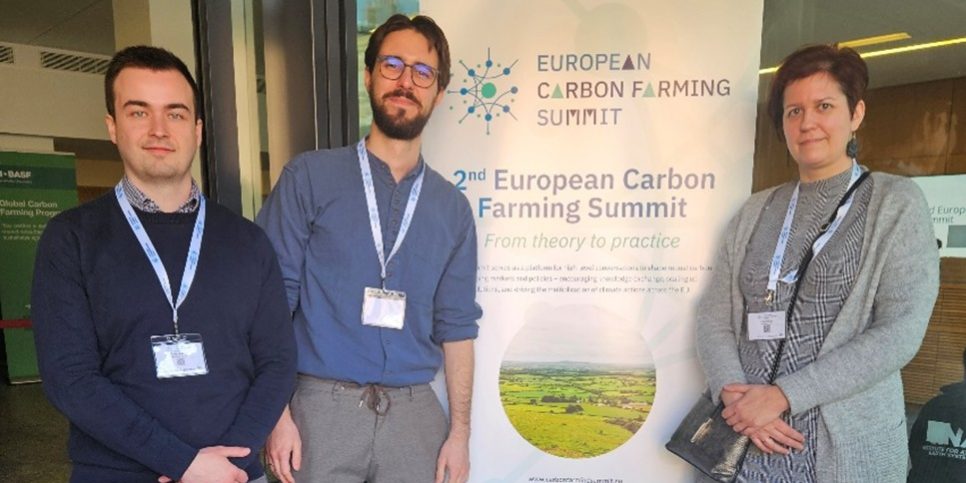The 2nd European Carbon Farming Summit was held in Dublin between 4-6 March 2025, with the participation of Csilla Óvári, Dávid Pozsonyi and Péter Szabó, representing the AKI (Institute of Agricultural Economics) and Innoviation and Digitalization Support Unit (ITE). The conference attracted great interest and brought together more than 500 experts from across Europe, including the Directorate-General for Climate Action (DG CLIMA) of the European Commission, representatives of the Member State ministries, organisations offering carbon farming programmes, researchers, farm advisors, the advocacy organisations of the farmers and, last but not least, farmers.
The event was organised under the Soil Mission of the Horizon Europe research framework programme. Its aim is to promote knowledge transfer and collaborative thinking between different actors to accelerate the green transition of agriculture and the food industry and to improve the condition of soils. The conference was first held in Valencia last year, where the scientific background of the carbon farming concept was presented. The event this year focused on innovative farmers, several good practices and individual experiences were shared, which will be summarized and published soon on the website of ITE as well. The event next year will focus on policy makers and will aim to discuss the policy instruments needed to widely disseminate innovative practices.
The climate policy of the European Union attributes an important role to agriculture and land use, as sustainable farming practices can sequester a part of the atmospheric carbon dioxide in the soil and plants, which can reduce the negative effects of the climate change. Practices promoted by the carbon farming concept, such as regenerative farming, optimisation of fertilisation, agroforestry or the preservation of permanent grasslands, can not only offset greenhouse gas emissions, but can also help to adapt to climate change by improving the fertility and water retention capacity of the soil. These practices are also incentivised by the current CAP within the framework of ecoscheme, agri-environmental and climate payment and investment subsidies, which are expected to be complemented by private funding in the future.


